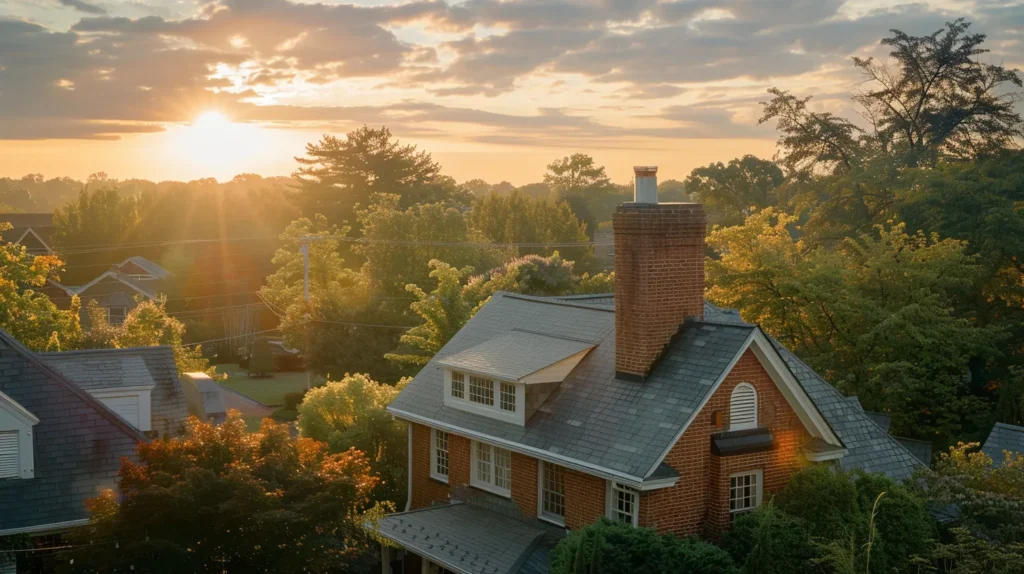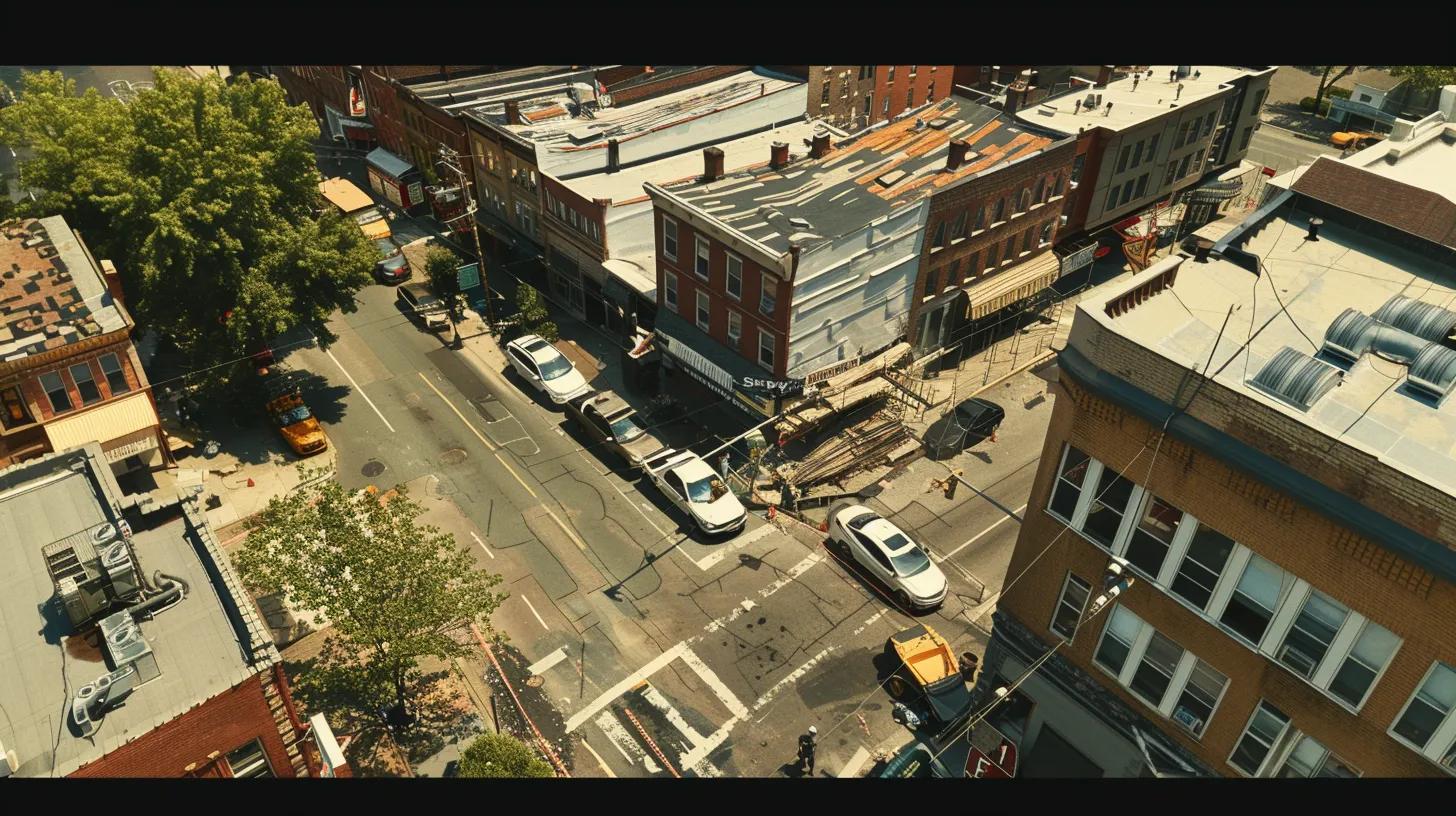Flat Roofing Installation NJ: What You Need to Know
Flat roofing installation often raises questions for New Jersey homeowners. This guide will address essential aspects, including the preparation needed for installation and the step-by-step process involved. Readers will gain insights into maintenance tips and the costs associated with flat roofing to better understand their investment. By tackling common concerns about flat roofs, this content will help readers make informed decisions, ensuring a successful roofing project that enhances their home’s safety and value.
Key Takeaways
- Flat roofing systems offer durable protection against weather conditions for homes and businesses
- Material choice significantly affects installation costs and long-term performance of flat roofs
- Regular maintenance and inspections can extend the lifespan of flat roofing systems considerably
- Engaging qualified contractors ensures compliance with local building codes and quality installations
- Sustainable materials like TPO provide energy efficiency, reducing utility costs over time
Understanding Flat Roofing Installation in New Jersey
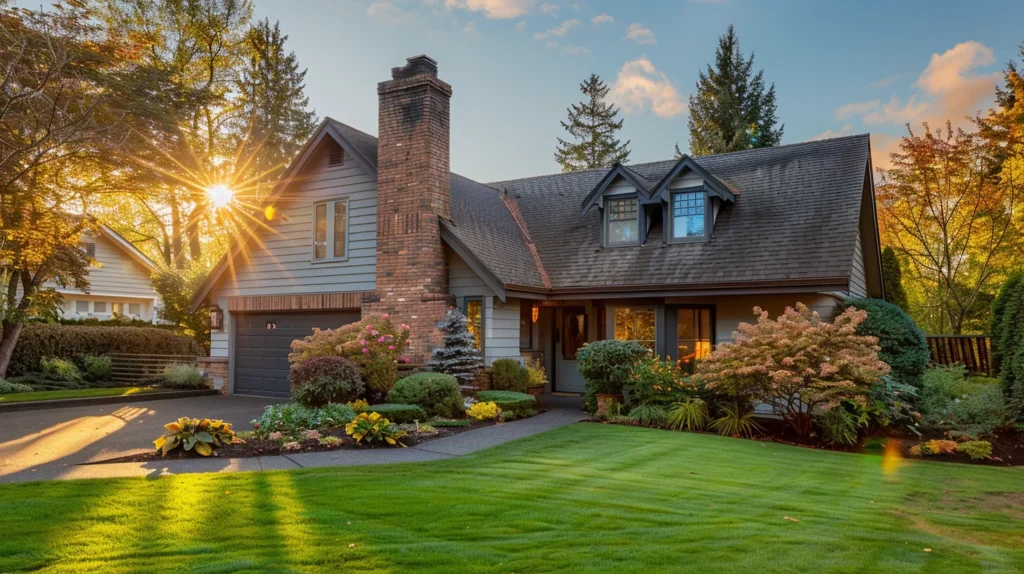
Flat roofing systems offer a practical solution for both residential and commercial applications in New Jersey. These roofs are designed to provide durable protection against snow and other weather conditions, ensuring longevity. Various materials, including tile, are commonly used for flat roofs, each presenting unique advantages. This section will delve into the benefits of installing a flat roof and the materials used in commercial roof installation.
Overview of Flat Roofing Systems
Flat roof installation is increasingly favored in New Jersey for its practicality and versatility across various structures. These systems, commonly made from materials like thermoplastic, provide a reliable barrier against water damage, making them suitable for both residential and commercial properties. The expertise of a qualified contractor is essential to ensure a successful installation that meets local building codes and weather-related challenges.
The effectiveness of flat roofing systems can significantly depend on the materials selected. While thermoplastic offers durability and ease of maintenance, different options may be available to suit specific needs and preferences. Homeowners and business owners are encouraged to assess their choices carefully, as the right installation can enhance a property’s longevity and improve its reputation within the community.
Benefits of Installing a Flat Roof
Choosing a flat roof offers several advantages for homeowners and businesses in New Jersey. These installations are often more affordable than pitched roofs, making them a cost-effective option for property owners. Additionally, flat roofs provide excellent insulation, which can lead to energy savings, particularly during the hot summer months. When combined with quality masonry services, a flat roof can enhance the overall durability and appeal of a property.
Flat roofing systems are also beneficial when considering design flexibility. They can serve as additional outdoor living spaces, such as patios or gardens, promoting the efficient use of property. Roofers skilled in flat roofing techniques are essential to ensure a seamless integration with other building elements, such as vinyl siding and gutter services. This comprehensive approach not only addresses structural needs but also enhances the aesthetic of a property:
- Cost-effective installation and maintenance
- Energy efficiency through better insulation
- Design flexibility for additional outdoor space
- Compatibility with masonry services and gutter solutions
- Improved aesthetic appeal with expert craftsmanship
Common Materials Used for Flat Roofs
When considering flat roofing installation in New Jersey, property owners often encounter a variety of materials suited for this style. Asphalt shingles and slate are among the most popular choices due to their durability and aesthetic appeal. Asphalt shingles provide affordability and effective weather resistance, making them ideal for both residential and commercial roof applications. On the other hand, slate offers a timeless look and long-lasting performance, appealing to those aiming for a more upscale finish.
In addition to these materials, property owners should also think about the implications of choosing various options concerning maintenance and emergency repairs. Selecting quality materials will not only enhance the longevity of the roof but also reduce the likelihood of needing commercial roof repair in the future. Engaging with skilled roofers familiar with flat roofing techniques ensures proper installation and contributes to the roof’s overall efficiency and safety, thus addressing potential issues before they develop into significant problems.
Now that the basics of flat roofing installation are clear, it is time to focus on what comes next. Preparing for the installation is key to ensuring a successful project and protecting your investment.
Preparing for Flat Roofing Installation
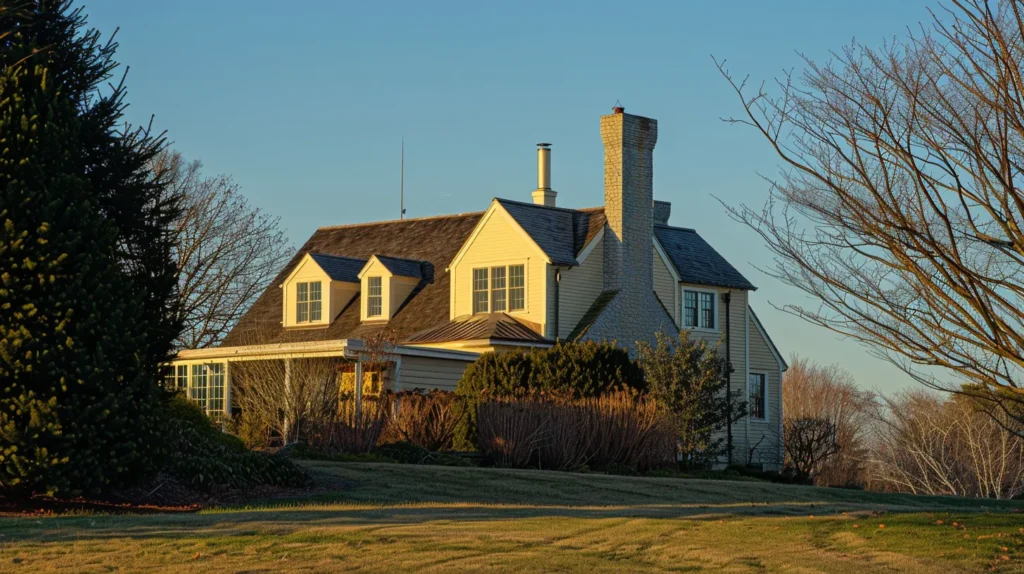
Assessing the existing roof condition is essential to determine the feasibility of a flat commercial roofing installation. Property owners must also choose a qualified contractor who prides themselves on quality workmanship and customer satisfaction. Furthermore, understanding local building codes ensures compliance and safety, which are critical for successful roof repair and maintenance of a commercial flat roof.
Assessing Your Existing Roof Condition
Before proceeding with flat roofing installation in New Jersey, property owners must thoroughly assess the existing roof condition. Identifying any leaks or areas of weakness is crucial, as repairs or modifications may be necessary before a new layer can be added. Engaging experienced roofing contractors ensures that these concerns are addressed effectively, promoting a solid foundation for the new roofing structure.
Evaluating the current roofing materials, such as metal or polyvinyl chloride (PVC), is also important. Understanding how these elements perform under local weather conditions helps determine the best approach for installation. This assessment not only highlights potential issues but also sets the stage for selecting appropriate roofing services nj that align with the property’s needs and enhance its longevity.
Choosing the Right Contractor
When selecting a contractor for flat roofing installation, it is essential to seek a professional with proven experience in handling thermoplastic olefin and other materials suited for commercial roofs. A reputable contractor will not only understand the unique challenges posed by ultraviolet exposure but also be adept at integrating roofing solutions with existing siding and other structural elements. This expertise ensures that the installation is conducted properly, enhancing the roof’s lifespan and maintaining its protective capabilities.
Engaging a qualified contractor can significantly reduce the risk associated with roof replacement projects. Homeowners should prioritize contractors who offer comprehensive assessments and can provide references for previous work. This approach helps in understanding their professionalism and ability to address potential issues effectively, leading to a successful flat roofing project that meets the client’s specific needs and expectations.
Understanding Local Building Codes
Understanding local building codes is essential for any flat roofing installation project in New Jersey. These regulations ensure that installations meet safety and performance standards, which can include specifications for membrane types, appropriate materials, and structural requirements. Property owners should consult with their chosen contractor to confirm compliance with local codes, as this may also influence related services such as rain gutter installation and skylight services.
To avoid potential fines or safety hazards, it is wise for property owners to obtain all necessary certifications before commencing their flat roofing project. Engaging a contractor who is familiar with local laws can streamline this process, making it easier to navigate any required permits or inspections. Seeking a free estimate from a qualified roofing specialist not only provides clarity on costs but also ensures that all elements of the installation align with building regulations.
The preparation lays the foundation for a successful installation. Next, the step-by-step process will guide readers through transforming a roof into a flat, reliable surface.
Step-by-Step Flat Roofing Installation Process

Initial preparations and material selection play a crucial role in the flat roofing installation process in New Jersey. Following this, the installation of roof decking and insulation ensures a solid foundation, while the application of the chosen roofing membrane, such as propylene, provides improved durability. Each step is designed to optimize customer satisfaction and ensure a reliable commercial roofing replacement.
Initial Preparations and Material Selection
The initial preparations for flat roofing installation in New Jersey are crucial for ensuring the project’s success. A thorough evaluation of the existing roof condition helps identify any underlying issues that need addressing before proceeding with a flat roof replacement. Property owners should engage a reliable roofing contractor to assess the impact of the local climate on material selection, as factors like temperature fluctuations and precipitation can affect the longevity and effectiveness of the roofing system.
Choosing environmentally friendly materials is becoming increasingly popular among homeowners seeking sustainable building solutions. Options like thermoplastic olefin (TPO) provide excellent energy efficiency, lowering utility costs while being better for the planet. Once the materials are selected, contractors should prepare for the installation by coordinating emergency service plans to tackle any unforeseen issues promptly, ensuring minimal disruption during the roofing process:
- Assess existing roof condition
- Determine appropriate environmentally friendly materials
- Coordinate with a qualified roofing contractor
- Establish emergency service plans for unforeseen issues
Roof Decking and Insulation Installation
The installation of roof decking and insulation is a critical stage in the flat roofing process, as it provides the foundational support needed for durability and effectiveness. Commercial roofers emphasize the importance of using high-quality materials, such as ethylene-based insulation, which offers enhanced moisture resistance and energy efficiency. Following proper inspection practices ensures that the decking is securely placed, allowing for a solid base that supports the roofing membrane and contributes to the overall lifespan of the roof.
Once the decking installation is complete, effective insulation plays a pivotal role in maintaining a comfortable indoor environment. Professional flat roofing services often recommend materials that align with local climate conditions to maximize thermal performance. By prioritizing these aspects during the installation phase, property owners can reduce energy costs and enhance their roof‘s reliability, ultimately safeguarding their investment.
Applying the Chosen Roofing Membrane
Applying the chosen roofing membrane is a critical phase in the installation of commercial flat roofing. This membrane serves as the primary defense against water intrusion, ensuring longevity and durability for the flat roof. A flat roof specialist will precisely install the membrane according to the manufacturer’s guidelines, which is essential for maximizing performance and reliability in varying weather conditions.
Moreover, the application process requires attention to detail, as improper installation can lead to leaks and other issues down the line. Engaging a reputable roofing company ensures that the membrane is adhered correctly, subsequently minimizing the need for future repairs. This meticulous installation approach enhances the overall functionality of the flat roof, addressing common concerns related to maintenance and sustainability for property owners in New Jersey.
Building a strong flat roof is just the beginning. To protect that investment, regular maintenance is key, and the next section offers vital tips to keep it in prime condition.
Maintenance Tips for Flat Roofs
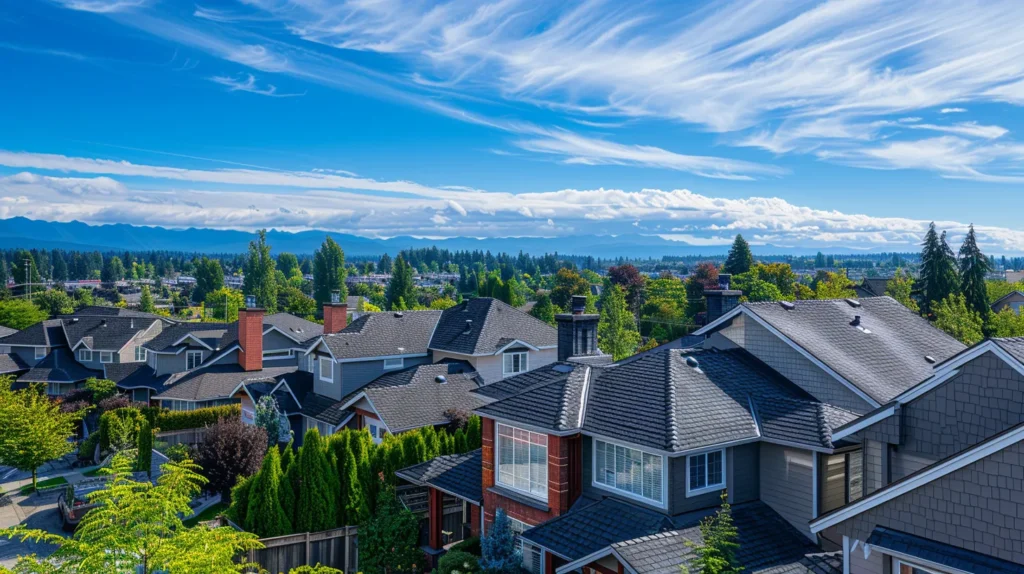
Regular inspections of flat roofs are crucial for identifying issues before they escalate. This section covers common problems, such as leaks and storm damage repair, along with effective strategies for addressing them. Additionally, a seasonal maintenance checklist will help property owners stay proactive, ensuring optimal performance and energy efficiency, whether the roof is made of polyolefin or metal.
Regular Inspection Practices
Regular inspections are essential for maintaining flat commercial roofs, ensuring that potential issues, such as storm damage or leaks, are addressed promptly. Property owners should conduct visual assessments at least twice a year, focusing on seams, flashing, and drainage areas to check for signs of wear or water pooling. Engaging professional commercial roofing services for thorough evaluations can help identify hidden problems, such as compromised waterproofing, that may not be immediately apparent during routine inspections.
In addition to scheduled inspections, property owners should also inspect their roofs after severe weather events. Storm damage can exacerbate existing vulnerabilities, increasing the likelihood of costly repairs or needing a commercial roof replacement. By being proactive and implementing a regular maintenance schedule, property owners can extend the life of their roofing systems and ensure they remain effective in protecting their properties against water intrusion and other potential risks.
Common Issues and How to Address Them
Common issues with flat roofs in South Jersey typically include leaks, pooling water, and structural wear, especially after extreme weather events. Property owners should routinely inspect their roofs for signs of damage, such as missing membranes or cracks, to address problems early. Maintaining a good roofing warranty can provide peace of mind, ensuring that repairs or replacements are managed efficiently by a trusted LLC specialized in roofing services.
Addressing problems promptly can prevent more significant issues in the future. For example, resolving pooling water quickly reduces the risk of leaks and damage to underlying structures. Engaging a professional roofing company in South Jersey will provide property owners with the expertise needed to not only fix these issues but also enhance the roof‘s overall durability against harsh environmental conditions.
Seasonal Maintenance Checklist
Maintaining a flat roof requires a well-structured seasonal maintenance checklist. Property owners in New Jersey should prioritize inspecting the roofing surface for debris accumulation, as leaves and branches may block drainage areas, potentially leading to water pooling and leaks. Regularly examining the seams and flashing is also essential to identify any signs of wear, ensuring that the roof remains watertight and that any minor issues are addressed swiftly.
In addition to visual inspections, property owners should consider scheduling professional evaluations at least twice a year, ideally in the spring and fall. These assessments can reveal hidden problems that may need attention, such as cracks or compromised insulation. Staying proactive with maintenance not only prolongs the roof’s lifespan but also enhances energy efficiency, ultimately safeguarding the property’s value. To summarize, here are key tasks for the seasonal maintenance checklist:
- Remove debris from the roof surface and drainage areas.
- Inspect seams and flashing for signs of wear.
- Check for water pooling or leaks.
- Schedule professional evaluations for comprehensive checks.
Maintaining a flat roof is vital, but the reality of costs looms large. Understanding these expenses can guide homeowners in making wise choices for their properties.
Costs Associated With Flat Roofing in New Jersey
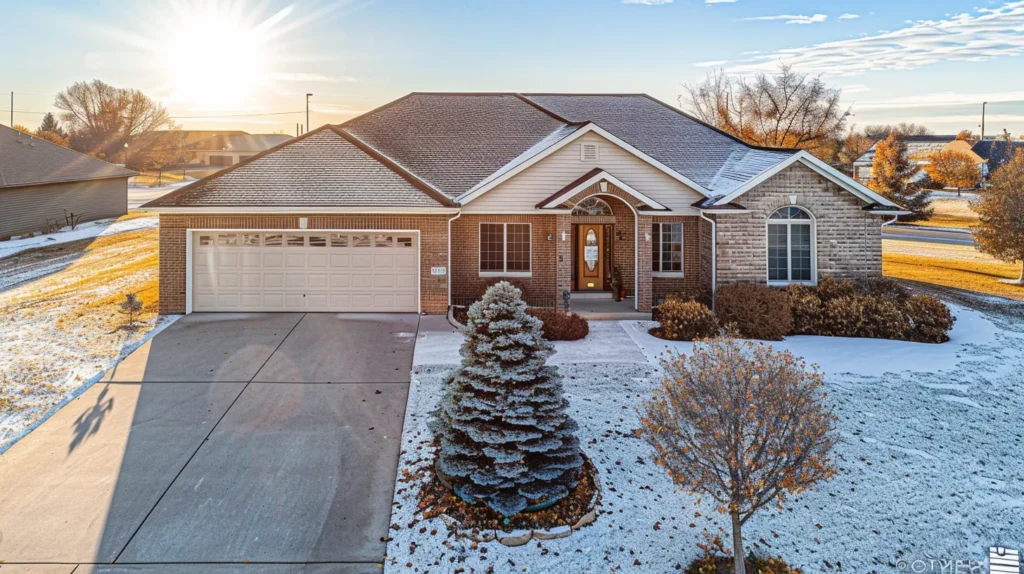
Several factors influence the costs associated with flat roofing installation in New Jersey, including material choices, labor, and specific project requirements. Comparing different roofing materials allows property owners to find options that fit their budget while considering potential long-term savings on energy efficiency and maintenance. This section will provide an overview of these key considerations to aid homeowners and businesses in making informed decisions.
Factors Influencing Flat Roofing Prices
Several factors influence flat roofing prices in New Jersey, affecting the overall cost of installation. The choice of material is significant, as options such as thermoplastic olefin or asphalt shingles vary in price depending on their durability, longevity, and maintenance requirements. Property owners should also consider the complexity of the roof structure, including slopes and access, which can impact labor costs during the installation process.
Labor costs represent another critical aspect of flat roofing expenses. Selecting a qualified contractor with expertise in flat roofing systems ensures that the installation meets local building codes and quality standards. The reputation and experience of the contractor may also influence pricing, as highly regarded professionals often deliver superior craftsmanship and support throughout the project, reducing the risk of future repairs:
| Cost Factors | Description |
|---|---|
| Material Choice | Different materials like TPO and asphalt shingles vary in pricing, influencing installation costs. |
| Roof Complexity | Complex roof structures can increase labor costs due to additional planning and installation requirements. |
| Labor Costs | Qualified contractors with more experience may charge higher fees but provide better quality installations. |
Comparing Different Roofing Materials
When comparing different roofing materials for flat roofing installation in New Jersey, property owners should consider factors such as durability, cost, and maintenance. Materials like thermoplastic olefin (TPO) offer excellent energy efficiency and longevity, making them a popular choice despite a higher initial investment. Conversely, asphalt shingles may present a more economical option upfront, but they often require more frequent maintenance and have a shorter lifespan compared to other materials.
Engaging with experienced roofing contractors can provide valuable insights into which material best aligns with specific project requirements and budget constraints. For example, while slate roofing may add aesthetic value and durability, its installation costs can be significantly higher than those of asphalt. Understanding these differences allows property owners to make well-informed decisions that enhance the overall performance and longevity of their flat roof, ultimately safeguarding their investment.
Potential Long-Term Savings
Investing in flat roofing installation in New Jersey can lead to significant long-term savings for property owners. High-quality materials, such as thermoplastic olefin, offer energy efficiency that reduces utility costs over time. By lowering energy consumption, property owners can enjoy a more stable financial outlook, as their heating and cooling expenses decrease significantly.
Moreover, choosing durable roofing solutions can minimize maintenance needs and repair costs in the future. A well-installed flat roof provides reliable protection against weather-related damage, reducing the frequency and expense of emergency repairs. This proactive approach not only preserves the property’s value but also enhances peace of mind for homeowners and businesses alike.
Understanding the costs of flat roofing can leave one with many questions. Let’s address the most common concerns about flat roofing installation for clarity and confidence.
Frequently Asked Questions About Flat Roofing Installation
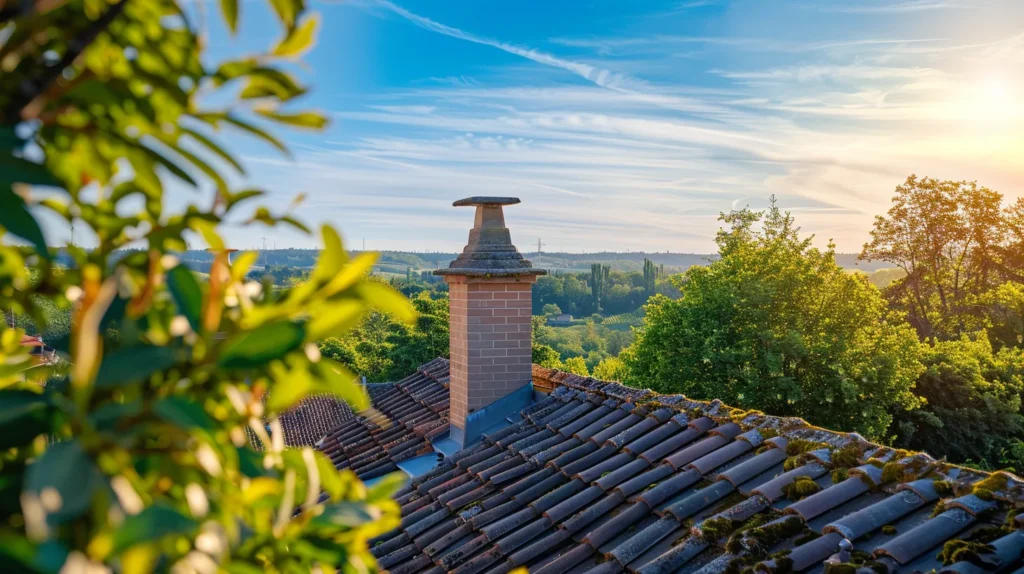
This section addresses common inquiries regarding flat roofing installation in New Jersey. It explores the expected lifespan of flat roofing systems, essential warranties that should be considered, and tips for selecting the most suitable materials for various projects. Each topic provides valuable insights to assist property owners in making informed decisions that enhance the durability and functionality of their roofs.
How Long Does Flat Roofing Last?
The lifespan of flat roofing systems in New Jersey typically ranges from 15 to 30 years, depending on the materials used and the quality of the installation. Options like thermoplastic olefin (TPO) are known for their durability and can last longer with proper maintenance. Engaging qualified contractors ensures that the installation meets local standards, further enhancing the roof‘s longevity.
Regular maintenance plays a significant role in extending the life of flat roofs. Property owners who schedule routine inspections and address minor issues promptly can prevent more extensive damage down the line. To maximize the lifespan of the flat roofing system, it is essential to stay proactive about maintenance and repairs:
- Understanding material choices is crucial.
- Regular inspections help identify issues early.
- Quality installation by skilled contractors enhances durability.
What Warranties Should Be Considered?
When considering flat roofing installation, property owners should carefully evaluate the warranties provided by contractors and manufacturers. A comprehensive warranty can cover defects in materials, workmanship, and potential water intrusion issues. Understanding the terms of these warranties will help clients make informed choices and ensure they have adequate protection against unexpected repairs or replacements.
It is advisable for property owners to ask potential contractors about their warranty offerings, as reputable companies often provide a workmanship warranty alongside the manufacturer’s warranty for materials used. This dual-layer of protection assists in safeguarding the investment in flat roofing, ensuring that any issues arising from installation errors or material defects are addressed without incurring significant additional costs. Clients can foster peace of mind knowing they are covered by warranties that support the integrity of their roofing system.
How to Choose the Right Flat Roofing Material?
Choosing the right flat roofing material is crucial for ensuring durability and performance. Property owners in New Jersey should evaluate options such as thermoplastic olefin (TPO) and asphalt shingles based on durability, energy efficiency, and maintenance requirements. Assessing the local climate conditions also plays a key role in selecting materials that will withstand weather patterns and provide lasting protection.
Moreover, property owners should consider project costs and the long-term benefits of various materials. Investing in high-quality materials can lead to lower maintenance costs and improved energy efficiency over time. Consulting with experienced roofing contractors can provide valuable insights, allowing clients to make informed decisions tailored to their specific needs and enhance the overall effectiveness of their flat roofing installation:
- Evaluate material options like TPO and asphalt shingles.
- Assess local climate conditions for durability needs.
- Consider long-term costs versus initial installation expenses.
- Consult experienced contractors for tailored advice.
Conclusion
Flat roofing installation in New Jersey is crucial for property owners seeking durability and cost-effectiveness. Understanding the materials and proper installation techniques ensures the longevity and efficiency of these roofs, ultimately protecting the investment. Regular maintenance, combined with the expertise of qualified contractors, enhances the roof‘s performance and aesthetic appeal. By prioritizing these elements, property owners can make informed decisions that significantly impact the safety and value of their homes or businesses.

